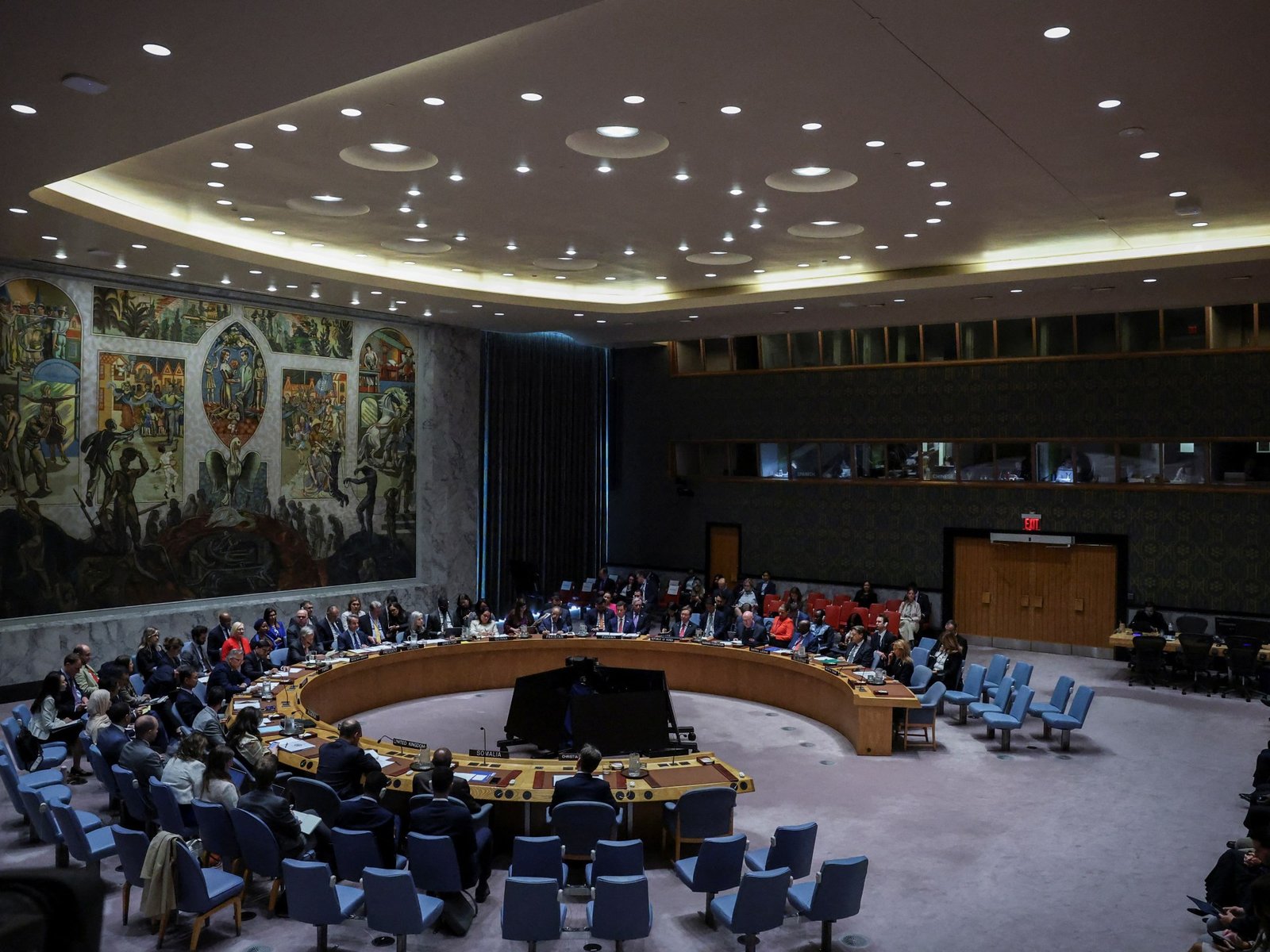Escalating Tensions at the UN: Iran and Allies Condemn US Military Actions as the US and Israel Stand Firm Against Criticism.
In a high-stakes emergency session of the United Nations Security Council (UNSC), discussions ignited following US-led airstrikes on Iranian nuclear facilities. This prompted intense backlash from various nations and intensified calls for a ceasefire in the Middle East, while allies Israel and the US celebrated the strategic intervention.
According to diplomats familiar with the situation, Russia, China, and Pakistan have jointly proposed a resolution advocating for an “immediate and unconditional ceasefire.” Although the draft refrains from directly naming the US or Israel, it criticizes the bombings of Iranian nuclear sites. No voting date has been set as of yet.
For the resolution to succeed, it needs support from at least nine UNSC members and must avoid vetoes from any of the five permanent members—namely, China, France, Russia, the UK, and the US. Given the current dynamics, the prospect of passing is bleak as the US is unlikely to self-censure.
UN Secretary-General Antonio Guterres expressed grave concerns during the proceedings, stating that the region is perilously close to spiraling into chaos. “The US bombardment of Iranian nuclear sites marks a dangerous shift in an already unstable area,” Guterres warned. “We are on the brink of a cycle of retaliation that could have devastating consequences. Prompt and decisive action is essential to cease hostilities and restart meaningful talks regarding Iran’s nuclear agenda.”
Dorothy Shea, acting US Ambassador, defended the military operation, asserting that the actions were necessary to eliminate Iran’s capabilities for nuclear enrichment, aiming to protect both American citizens and allies. “The time has come for the U.S. to act decisively in defense of our interests and our allies,” Shea emphasized. “We won’t tolerate any escalation from Iran—any form of hostility targeting Americans will trigger severe repercussions.”
Iran’s ambassador, Ali Bahreini, responded vehemently, claiming that the Israeli and American attacks were part of a larger strategy driven by the political machinations of the US and its European partners. He cautioned that the Iranian military would dictate the “timing, nature, and scale” of their retaliation.
Meanwhile, Israel’s UN representative, Danny Danon, staunchly defended the attacks, characterizing them as steps toward a more secure world, and dismissed any calls for condemnation. When questioned about whether Israel endorses regime change in Tehran, he stated, “That’s a matter for the Iranian people to decide.”
China’s ambassador, Fu Cong, condemned the US actions, advocating for restraint. “An immediate ceasefire is imperative,” he urged, expressing China’s deep concern regarding the escalating tensions.
Russia’s representative, Vasily Nebenzya, characterized the military actions as indicative of the US’s blatant disregard for international propriety, remarking, “The US has opened a Pandora’s box, and the consequences remain unpredictable.”
Pakistan’s Ambassador, Asim Iftikhar Ahmad, also voiced opposition to the US airstrikes, labeling them as alarming and indicating solidarity with Iran. “The escalation of violence due to Israeli aggression is profoundly disturbing,” he remarked. “Pakistan stands with Iran during these challenging times.” Notably, the day before his remarks, a suggestion was made in Pakistan to nominate former President Donald Trump for the Nobel Peace Prize.
Trump’s declaration of the successful airstrikes on Iran’s key nuclear sites marks a critical juncture in Western military involvement in the region since the 1979 revolution.
Rafael Grossi, the head of the International Atomic Energy Agency (IAEA), informed the UNSC that while the extent of the damage was still being assessed, significant impact craters were noticeable at the Fordow facility. The entrances to tunnels at Isfahan were also reportedly targeted, while Natanz, which has previously faced Israeli sabotage, was struck again. Iran has accused Grossi of enabling the US and Israel’s assault on its nuclear program.
The IAEA’s Board of Governors passed a resolution just before the Israeli strikes, stating that Iran was failing to meet its international nuclear safeguard commitments.

